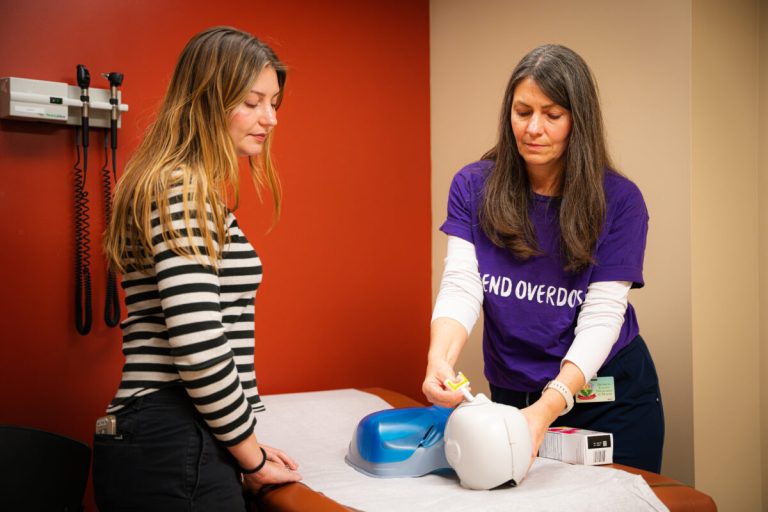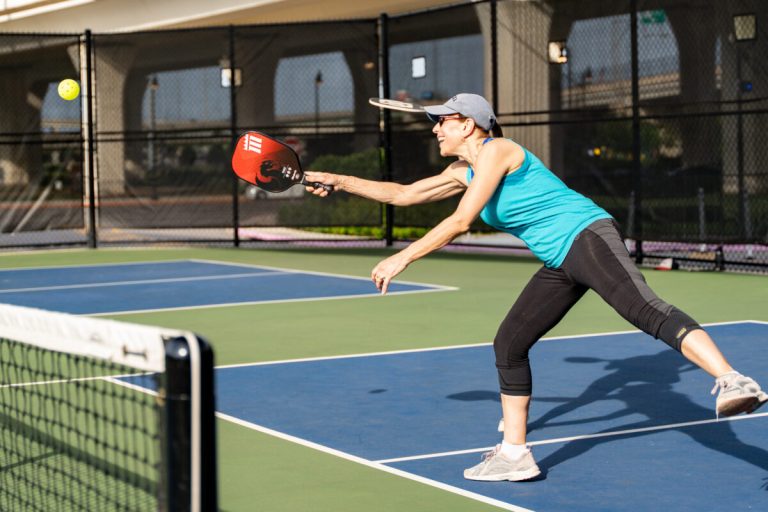Reviewed by: Callie Morrison
Get your mind right with these 5 lessons from a top sports psychologist at Lakeshore
Reading time: 4 minutes
Sponsored

When Simone Biles pulled out of the 2020 Olympics, she continued a mental health discussion Michael Phelps and others began. Now it’s common for elites athletes and people in other walks of life to recognize the importance of mental health.
In August, before the Paralympic Games, internationally-renowned sports psychologist Artur Poczwardowski (Dr. P) came to Lakeshore Foundation in Birmingham.
The focus of his talk: “Don’t leave your mind behind: How mental training assists athletes in practice and competition.”
Much of what he shared can help all of us, whether in our work, recreation or home life. Keep reading for five of his top tips.
About Lakeshore Foundation

Lakeshore Foundation is an international leader, helping people with disabilities live healthy, active lives.
It was the first facility designated as both a U.S. Olympic and Paralympic Training site, welcoming elite athletes from across the globe to train and compete here in Birmingham.
It also serves as the National Governing Body of two Paralympic sports:
- Boccia United States
- USA Wheelchair Rugby
Fun fact: USA Wheelchair Rugby happens to be the most decorated Paralympic wheelchair rugby program in history.
Lakeshore Sports Science and Performance Center (SPCC)
Lakeshore Sports Science and Performance Center (SSPC) is Lakeshore Foundation’s newest endeavor, with three main goals:
- Provide in-person + virtual services to all athletes.
- Advance sports science research.
- Pave a pathway for emerging + elite athletes with or without disabilities to achieve sporting success + a lifetime of health.
In mid-August, they hosted Dr. Artur Poczwardowski for a talk to athletes, coaches and performers on the benefits of mental training.
“We take our mind with us when we compete and train. Whether we know it or not, sometimes it can stand in our way. Work with it; train it; prepare it.”
Dr. Artur Poczwardowski, Denver University, Graduate School of Professional Psychology
1. Pay attention to the complete person

Dr. P talked about the importance of focusing on the “complete athlete.”
This means seeing a person as a human being across the course of their lifespan. It means focusing on supportive relationships, nutrition, sleep, skill development, play and more.
The image that came to my mind as he spoke was Serena Williams.
For decades, she was laser-focused on tennis. Now that she’s retired, she can devote her energy to other pursuits. But everything she became during those years as an athlete will serve her forever.
For coaches and athletes, it’s important to remember that they are—and will be—more than their sport.
2. Strive for excellence

Dr. P focused on the quest for athletic and personal excellence, which includes:
- Interpersonal + team relationships
- Spiritual practice
- Sport preparation (everything from physical strength + conditioning, technical skills, tactical plays to mental training)
- Team culture
It’s not a stretch to translate each of these into off-the-field life.
So often, we can think of excellence as a one-dimensional, individual pursuit. And, it can be so much more than that.
3. Work toward continuous improvement

When I worked at Trader Joe’s, we operated under a Japanese philosophy called “Kaizen”—which basically means continuous improvement.
For athletes—and the rest of us—this involves preparing, performing and recovering—over and over again. Areas to pay attention to include technique, nutrition and focus under pressure.
4. Develop focus

We all know what a difference focus makes to our day-to-day. Whether in athletics, work or with loved ones, focus has a way of making everything better.
Elite performers work to increase focus, including under pressure. They also work to get better at refocusing when something throws them off their game.
5. Practice mental skills

Dr. P led participants through a series of questions about tools and skills we can use. Whether it’s to stay positive after a setback or to thrive, these are areas where we can all improve.
- Energy regulation—Knowing when to give it your all + knowing when to pull back.
- Flexible mental plans + routines—Have discipline and structure + don’t get rigid.
- Mindfulness—He led us through a visualization exercise that left everyone feeling more centered.
- Productive self-talk—Think of Diana Nyad and her coach shouting “Onward” as she tried swimming from Cuba to Florida.
You can work with Dr. P through Lakeshore SSPC for mental training.
Sponsored by:





 11447 views
11447 views